#intellectual property era
Text




Petti Hendrix - Be Ok RMX ft. Good Charlotte & WaterParks (Official Music Video)
#dailywaterparks#dailywaterparkscreates#awsten knight#awsten waterparks#waterparks#awsten knight gifs#red awsten era#intellectual property era
34 notes
·
View notes
Text
Okay, breaking my principles hiatus again for another fanfic rant despite my profound frustration w/ Tumblr currently:
I have another post and conversation on DW about this, but while pretty much my entire dash has zero patience with the overtly contemptuous Hot Fanfic Takes, I do pretty often see takes on Fanfiction's Limitations As A Form that are phrased more gently and/or academically but which rely on the same assumptions and make the same mistakes.
IMO even the gentlest, and/or most earnest, and/or most eruditely theorized takes on fanfiction as a form still suffer from one basic problem: the formal argument does not work.
I have never once seen a take on fanfiction as a form that could provide a coherent formal definition of what fanfiction is and what it is not (formal as in "related to its form" not as in "proper" or "stuffy"). Every argument I have ever seen on the strengths/weaknesses of fanfiction as a form vs original fiction relies to some extent on this lack of clarity.
Hence the inevitable "what about Shakespeare/Ovid/Wide Sargasso Sea/modern takes on ancient religious narratives/retold fairy tales/adaptation/expanded universes/etc" responses. The assumptions and assertions about fanfiction as a form in these arguments pretty much always should apply to other things based on the defining formal qualities of fanfic in these arguments ("fanfiction is fundamentally X because it re-purposes pre-existing characters and stories rather than inventing new ones" "fanfiction is fundamentally Y because it's often serialized" etc).
Yet the framing of the argument virtually always makes it clear that the generalizations about fanfic are not being applied to Real Literature. Nor can this argument account for original fics produced within a fandom context such as AO3 that are basically indistinguishable from fanfic in every way apart from lacking a canon source.
At the end of the day, I do not think fanfic is "the way it is" because of any fundamental formal qualities—after all, it shares these qualities with vast swaths of other human literature and art over thousands of years that most people would never consider fanfic. My view is that an argument about fanfic based purely on form must also apply to "non-fanfic" works that share the formal qualities brought up in the argument (these arguments never actually apply their theories to anything other than fanfic, though).
Alternately, the formal argument could provide a definition of fanfic (a formal one, not one based on judgment of merit or morality) that excludes these other kinds of works and genres. In that case, the argument would actually apply only to fanfic (as defined). But I have never seen this happen, either.
So ultimately, I think the whole formal argument about fanfic is unsalvageably flawed in practice.
Realistically, fanfiction is not the way it is because of something fundamentally derived from writing characters/settings etc you didn't originate (or serialization as some new-fangled form, lmao). Fanfiction as a category is an intrinsically modern concept resulting largely from similarly modern concepts of intellectual property and auteurship (legally and culturally) that have been so extremely normalized in many English-language media spaces (at the least) that many people do not realize these concepts are context-dependent and not universal truths.
Fanfic does not look like it does (or exist as a discrete category at all) without specifically modern legal practices (and assumptions about law that may or may not be true, like with many authorial & corporate attempts to use the possibility of legal threats to dictate terms of engagement w/ media to fandom, the Marion Zimmer Bradley myth, etc).
Fanfic does not look like it does without the broader fandom cultures and trends around it. It does not look like it does without the massive popularity of various romance genres and some very popular SF/F. It does not look like it does without any number of other social and cultural forces that are also extremely modern in the grand scheme of things.
The formal argument is just so completely ahistorical and obliviously presentist in its assumptions about art and generally incoherent that, sure, it's nicer when people present it politely, but it's still wrong.
#this is probably my most pretentious fanfiction defense squad post but it's difficult to express in other terms#like. people talking about ao3 house style (not always by name but clearly referring to it) as a result of fanfic as a form#and not the social/cultural effect of ao3 as a fandom space#you don't get ao3 house style without ao3 itself and you don't get ao3 without strikethrough and livejournal etc#and you don't get those without authors and corporations trying to exercise control over fic based on law (often us law) & myths about law#and you don't get those without distinctly modern concepts of intellectual property and copyright#none of those things have fuck all to do with form!#anghraine rants#fanfiction#general fanwank#long post#thinking about this partly because the softer & gentler versions of fanfic discourse keep crossing my dash#and partly because i've written like 30 pages about a playwright i adore who was just not very good at 'original fiction' as we'd define it#both his major works are ... glorified rpf in our context but splendid tragedies in his#and the idea of categorizing /anything/ in that era by originality of conception rather than comedy/tragedy/etc would be buckwild#ivory tower blogging#anghraine's meta
88 notes
·
View notes
Text
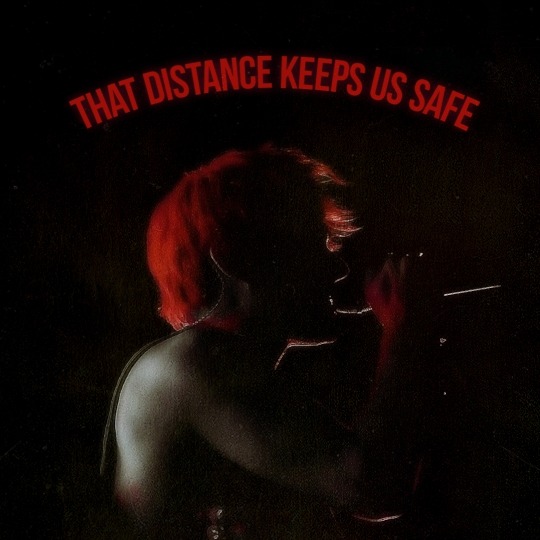
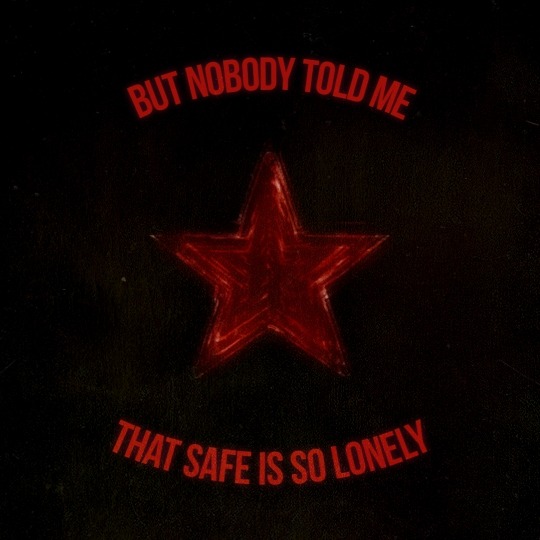
Waterparks - END OF THE WATER (FEEL)
#waterparks#waterparks band#intellectual property#awsten knight#why does he look like gerard way in his dd era#waterparks lyrics
49 notes
·
View notes
Text

For the Property Tour show at Magnet House in Perth Australia, Awsten wears a Market Rose Garden sweater ($150). He pairs it with Firm Grip high vis utility gloves in yellow ($12.97). He has cut the fingers off the gloves.
Later during the show, he took off the sweater and wore an inside-out grey tee shirt the remainder of the night.
📸Twitter: perhapsimacow
#not as impressive of a find the second time around i guess lol#anyways calling this the sooh sweater now :)#market#property tour#the property tour#waterparks#awsten knight#2023#october 2023#intellectual property#i think we're safe from a new era FOR NOW
28 notes
·
View notes
Text
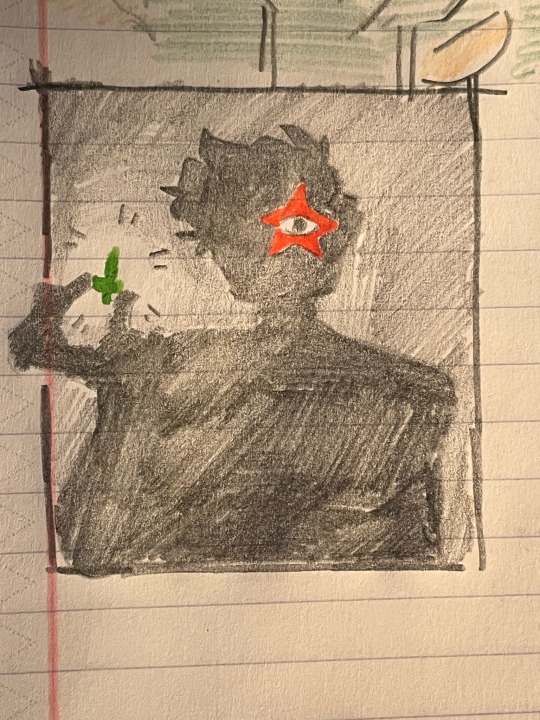
forever obsessed w the notion that when he doesn’t have a body to possess soulsucker is literally just a little shadow guy
#waterparks band#soulsucker#st*rfucker#intellectual property#awsten knight#no because this era is messing w my HEAD#the rgb and cym ties are making me crazy silly i fear i might need to actually read the bible and a textbook on print color science#my theories need it
7 notes
·
View notes
Text
The only musical based on a pre-existing film I've listened to is Shrek (I did sound crew for my high school's production of it lol) and aside from two decent songs...yeah, waste of time.
#actually the era of remakes/reboots we're in#kind of started with musicals#because producing musicals is so expensive#people would rather invest money into a pre-existing intellectual property#that people will probably go see#as opposed to something new that might flop#and cost everyone thousands of dollars to have put on stage
18 notes
·
View notes
Text
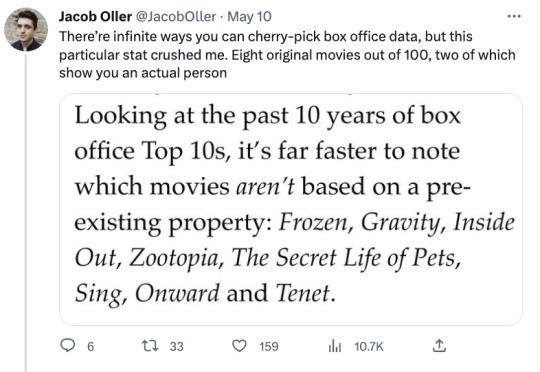
Well
4 notes
·
View notes
Photo

waterparks✓ shared to instagram
↳ waterparks✓: THE FINAL NIGHT OF THE PROPERTY TOUR IN LOS ANGELES TONIGHT
THE LAST ONE FOR A WHILE - COME FINISH IT OFF WITH US
FEW TICKETS LEFT HERE: www.waterparksband.com/tour
↳ tagging ; @theregoesgeoff / @notottofromparx
[ ooc; part of hollywoodfamerp only! don’t reblog, use or save outside the group! likes outside the group not encouraged but will not be stopped ]
#instagram; shared by @waterparks#career; the property tour; intellectual property era#queue; don't queue any closer
4 notes
·
View notes
Text
so my waterparks lore video script is up to 7,700 words already… and i’m not even finished yet…
#still have to type up half of intellectual property era#and maybe rewrite the whole intro#and revise the whole thing#parx#.txt
6 notes
·
View notes
Text
As a former librarian, the whole "don't pirate books, you are taking money authors need to feed their starving children, just borrow from the library instead :) " makes me angry.
Because e-book prices for libraries are insanely high. Like I've heard the jokey meme about how "if libraries were proposed today, they would be condemned as some socialist infringing on intellectual property rights."
Well, the rights for libraries to lend out paper books were negotiated almost a century ago in most western countries, while the rights for libraries to lend out e-books and digital audiobooks were negotiated during the present neoliberal era where corporations are very powerful. And It fucking shows.
The prices for libraries to buy e-books are insane, and that's not even counting the circulation fees. And the books are frequently restricted by licensing to a certain small number of loans per book, after which the e-book is destroyed and the library has to buy a new one to the exorbitant prices the publishers give.
Like the advice about how piracy is some great evil cutting into author's profits and how you should just borrow from libraries instead is so infuriating in that context. Like listen to actual librarians talk about e-book pricing for libraries. It's a major drain on library funds, and in the era of neoliberalism and austerity those budgets are strained as it is. And libraries inability in the face of these costs to provide digital content is used as justification for further cuts.
Librarians have boycotted major publishers over their ridiculous e-book policies and have talked about how ridiculous prices are for years, and for good reason.
This is fucking corporate robbery of library funding, of tax payers money to further their own private profits. Any moralistic bullshit about the evils of book piracy should be put in that context. If the ordinary person is stealing the publishers precious book sales profits, those publishers are already robbing that person's tax dollars.
It's a fucking hypocrisy to justify the present system of copyright and intellectual property with "well, if you are poor it's still wrong to pirate because you can get books for free legally from libraries". Because book publishers are already using their strong intellectual property rights to bleed libraries dry of funds, killing them in the process like the fucking vampires they are.
9K notes
·
View notes
Note
Do the ethnostates inherent in major fantasy ever feel real weird to you? You’ve got elftopia (full of elves, where everyone speaks elf and worships the elf gods), orc-hold (full of orcs and maybe their slaves, where everyone speaks orc and worships the orc gods), and dwarfton (made by the dwarves! for the dwarves!).
You might have some cosmopolitan areas, usually human-dominant, but those are usually rare enough in-setting that they need to be pointed out separately. Is this just based on a misunderstanding of the medieval era, and the assumption that countries were all racially homogenous?
This has been bouncing around my brain the last little while. Do you have any thoughts on that? Is it just in my head?
I think what you've noticed is a quirk of derivative fantasy writing, which like a lot of hangups with the genre originates in people trying to crib Tolkien's work without really understanding what he was going for:
Though it contains a lot of detail, Tolkien's world is not grounded. It functions according a narrative logic that changes depending on what work in particular you're focusing on at the time (The Hobbit is a fairytale full of tricks and riddles, Lord of the Rings is a heroic epic, The Silmirilion is a legendary history).
One of the reasons the races are separate is to instill the feeling of wonder in the hobbits as POV characters for the reader, other folk live in far off places and are supposed to feel more legendary than our comparatively mundane friends from the shire. The Movies captured this well where going east in middle earth was like going back in time to a more and more mythologized past.
In real life, people don't stay static for thousands of years, no matter how long their people live. They meet, mingle, war and trade. Empires rise and fall creating shrapnel as they go, cultures adapt to a changing environment. This means that any geographic cross section you make is going to be a collage of different influences where uniformity is a glaring aberration.
What the bad Tolkien knockoffs did was take his image of a mythical world and tried to make it run in a realistic setting. Tolkien can say the subterranean dwarven kingdom of Erebor lasted for a thousand years without having to worry about birthrates or demographic shifts or the logistics of farming in a cave because he's writing the sort of story where those things don't matter. D&D and other properties like it however INSIST that their worlds are grounded and realistic but have to bend over backwards to keep things static and hegemonic.
Likewise contributing to the "ethnostate" feeling is early d&d (backbone of the fantasy genre that it is) being created by a bunch of White Midwestern Americans who were not only coming from a background of fantasy wargaming but were working during the depths of the coldwar. Hard borders and incompatible ideologies, cultural hegemony and intellectual isolation, a conception of the world that focused around antagonism between US and THEM. These were people born in the era of segregation for whom the idea of cultural and racial osmosis was alien, to the point where mingling between different fantasy races produced the "mongrelman" monster, natural pickpockets who combined the worst aspects of all their component parts, unwelcome in good society who were most often found as slaves.
This inability to appreciate cultural exchange is likewise why the central d&d pantheon has a ton of human gods with specific carveouts for other races (eventually supplemented with a bunch of race specific minor gods who are various riffs on the same thing). Rather than being universal ideals, the gods were seen as entities just as tribalistic as their followers.
612 notes
·
View notes
Text


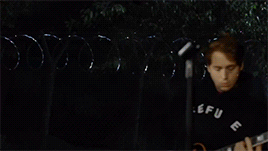









Do you think God knows? You've been sneaking out of heaven
Like were his eyes closed? 'Cause there's no way he's just letting
You fall from the stars, and get in my car.
Go to my place, and you put away your halo
Do you think God knows, you've been sneaking out of heaven?
#dailywaterparkscreates#waterparks#waterparks band#waterparks gifs#awsten knight#awsten waterparks#red awsten era#awsten knight gifs#intellectual property era#otto wood#otto waterparks#otto wood gifs#geoff wigington#geoff waterparks#geoff wigington gifs
66 notes
·
View notes
Text
I'm usually irritated by the people sneering about fanfic insisting it is just intrinsically inferior to early modern writers raiding Ovid or Chaucer or the news or each other or whomever. I've never seen anyone have a decent rationale beyond early modern writing is intrinsically Art and fanfic is intrinsically Not Art, because of reasons (the artistic purity of working within early modern patronage and censorship, I guess?).
I'm not talking Shakespeare specifically (though Lear <3). He was by no means alone in borrowing characters and plots from previous sources and then doing his own thing with them. A lot of my favorite plays of the time re-purpose established stories in this way.
But also, it comes around to kind of funny when people are not only insisting that fanfic is definitionally Not Art and in some way totally different from the usual kind of borrowing that goes back millennia, but also that fanfic is somehow morally degenerate and harmful and unhinged in a new and shocking way.
Because if early modern English literature is defined by anything, it's being absolutely fucking unhinged.
I mean! The Revenger's Tragedy?? The White Devil (borrowed directly from the murder headlines)??? My best beloved 'Tis Pity She's a Whore (pretty obviously a spin on Romeo and Juliet But Now With Incest and Even More Murder)? These things are batshit. And fantastic! I love them! But holding them up on some pedestal of artistic and moral purity is just bizarre IMO.
There are differences between what they did and contemporary fanfic because we live in different eras and cultures, in some ways radically so, because copyright and intellectual property work so differently now and have affected storytelling so much, because of the effects of things like genre romance and the Internet and AO3, because patronage and censorship now work very differently in a lot of ways, because educations and literary norms are so different, and so on.
But is fanfic in some way uniquely trashy and shocking by contrast to what those men were thinking up? Nah.
#y'all act like a mildly edgy au is the herald of the literary end times and meanwhile several centuries ago#you've got playwrights going 'you know what would be fucked up? because i've got a GREAT idea'#i'm thinking of that quote about austen - 'you could not shock her more than she shocks me'#and i feel it's very accurate for a lot of early modern playwrights too#like you think fanfic would shock john ford? lmao#anghraine babbles#long post#fanfiction#early modern blogging#general fanwank
80 notes
·
View notes
Text

To preview their upcoming single Sneaking Out Of Heaven, Awsten wears a Market Rose Garden sweater ($150).
#waterparks#awsten knight#intellectual property#new era#covering our bases just in case lol#market#sneaking out of heaven#HE SOUNDS SO GOOD IM SO OVER THE MOON EXCITED#2023#october 2023
14 notes
·
View notes
Text
There's a German economic historian named Eckhard Höffner who has argued that during the early 19th century, German science and industry benefited strongly from a lack of copyright law, as compared to England and France in the same period. Specifically, copyright law improved the profits of publishers, who could set high prices for books, but not really authors--while in England books, including scientific monographs, were published in small editions mostly at higher prices, publishers in Germany in the same period had to be more innovative, with editions aimed at both the high-end and low-end market, lest competitors flood the market with cheaper editions of the same works.
This meant that both popular works and academic titles entered the market in large numbers and at low prices, and this in turn motivated scientists in particular to publish, since it was comparatively easy for their work to get to readers. There was also a proliferation in the kinds of books published, since the cost of books was lower, and many more types of customers could enter the market. This situation might be seen as one where it was hard for authors to make a living, but the opposite seems to have been the case: Höffner cites, by way of example, a chemistry and pharmacy professor of the era in Berlin who earned far more in royalties for his book on leather tanning than Mary Shelley did for "Frankenstein" in the same period.
The accessibility of books, and scientific literature in particular, laid the foundation for the period of rapid German industrial expansion in the 19th century. As copyright law became gradually established (starting in Prussia in 1937), German publishers reacted in much the same way as British ones, increasing the prices of books. The market for cheap editions dried up, often to the frustration of authors whose readership declined.
Nowadays we think of copyright as being almost a requirement to create a market in intellectual property, and while the marginal costs of distribution are even lower in the electronic age than they are in the age of print, I think this thesis (to the extent it holds up) is an interesting argument against that proposition! It's also especially interesting as an adjunct to arguments for openness in scientific publication--between criticisms of the peer review system as contributing to perverse incentives in the structuring of science as a profession and being not really fit for purpose (not contributing at all, for instance, to preventing the replication crisis), it seems that that the gradual turn towards more open channels in scientific publishing should only increase with time. Weakening copyright law (which mostly serves the interests of publishers and not authors anyway) might help not only with artistic innovation but scientific innovation as well.
130 notes
·
View notes
Text
Hmm so turns out I have a lot of feelings about intellectual property and corporate ownership.
The live action reviews are messy because they've made assumptions about what is canon. I've been through reboots before so I'm used to Eras of Canon (like the Star Wars extended universe or Trek timelines)...
Garrett Sander is the creator of Monster High but he didn't get to decide what was canon at the time due to corporate and now he's not employed by Mattel and has no say over the characters in G3.
Put simply, Clawdeen isn't a lesbian in G1 canon because corporate never allowed it and G3 canon will be whatever Mattel decides even if it goes against a character design basic by Sanders because he didn't truly own any intellectual property created during company employment and has now been shut out of it (probably with no royalties whatsoever).
I've long felt this type of IP ownership is disgusting. Carter Bryant was struggling to pay hospital bills while his creation: Bratz, not revamped, the literal original designs, are selling like hotcakes because he doesn't technically own his work.
And while the monster high tag fights over whether Cleo/Deuce or meangirl!Torelei is "canon", I'm just getting more and more annoyed that "canon" was never Sander's to decide and isn't going to pay his bills. He's not even being sent the repros of his original designs. Mattel can do whatever they want with the Monster High characters and worse they can milk it without the creator getting a dime.
So that's my contribution to the discourse: Please look beyond the characters at how the sausage is made.
If fans decide to campaign for anything from Mattel, please can it be to allow their artists royalties on their work.
#Monster High#monster high live action#Monster High movie#Dolls#Mattel#Bratz#MGAe#Intellectual property rights#saf
416 notes
·
View notes